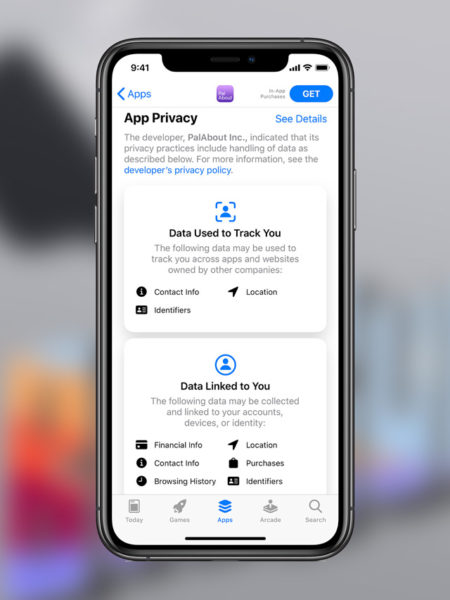Key insights
Apple did not outright kill its key mobile advertising tool IDFA this week, meaning a $45 billion subsector of the media industry lives to see another day. But its new consent requirements present a significant hurdle.
At its Worldwide Developers Conference Monday, Apple announced a series of privacy updates to its iOS ecosystem that will place further barriers in the way of companies eager to cash in on in-app advertising.
The updates require app developers to seek consent from iOS device users in order for third parties, aka app monetization partners, to access their data. This, in effect, makes IDFA an opt-in feature for users, and advertisers will no longer be able to target them by default.
As part of its iOS 14 update, Apple will require app developers, including media owners and brands, to disclose the data they collect and the third parties they share it with.
Apple called this requirement a “nutrition label for privacy.” App Store product pages will feature summaries of developers’ self-reported privacy practices with the wording in layman’s terms.
Additionally, the company is further rolling out “Sign in with Apple,” whereby users can choose to share their approximate location with app developers when granting access rather than their precise location.
The ramifications for ad tech

The announcement was a relatively minor footnote sandwiched between consumer-facing announcements involving upcoming features for Apple’s mobile, iPad, Mac and Watch operating systems.
While Apple makes much of its transparency regarding consumer data, its communications with the ad industry are more opaque. The announcements and subsequently released documentation have led to varying interpretations of what the latest announcements say about Apple’s long-term plans.
What is clear is that iOS 14’s transparency requirements will have repercussions for the digital media ecosystem with laws such as the California Consumer Privacy Act and growing public backlash over how user data is used to target ads.
One industry source, who requested anonymity, said the upcoming features, which are expected to roll out starting in September, will effectively make IDFA an opt-in feature on a per-app basis with use of Apple’s Limit Ad Tracking tool likely to increase.
Performance will be tough to prove
The likely effect will be a reduction in revenue from publishers’ iOS inventory, a phenomenon already observed with Apple’s tracking limitations in its Safari web browser, as targeting users will become much more difficult. This lessens their ability to charge a premium for ad inventory.
By association, supply-side ad tech, such as ad exchanges and performance ad networks (which typically get paid per result) will also be negatively impacted.
However, the announcements fall significantly short of what some had feared—like Apple pulling the plug on IDFA outright. For instance, a pending update to Apple’s SKAdNetwork will facilitate ad networks with approved privacy policies to help advertisers attribute which ad placement on third-party apps generated downloads.
Some suggest iOS 14’s transparency requirements are an acknowledgment of the importance advertising plays for the half-trillion-dollar per year app economy while providing enhanced privacy assurances to the public.
“Apple is making a statement,” said Matt Barash, head of strategy and business development at mobile advertising company AdColony, who claimed the updates will clear up some of the “grey areas” of data practice that have prevailed in recent years.
“Advertisers should prepare to recognize a shift in the scale of the audiences they can target,” Barash added. “Savvy advertisers should be prepared to balance both audience and contextual approaches in their mobile media mix.”
Paul Gubbins, an ad tech consultant who specializes in mobile, told Adweek the updates were not an indication of Apple’s intention to destroy ad tech but acknowledged that performance-based players and those that effectively sell IDFAs to third parties will be inhibited.

Save your virtual seat for Adweek NexTech, July 27-July 30th to explore privacy, data, attribution and the benchmarks that matter. Learn more.
https://www.adweek.com/programmatic/apples-latest-privacy-announcement-could-be-more-impactful-than-ccpa-or-gdpr/

